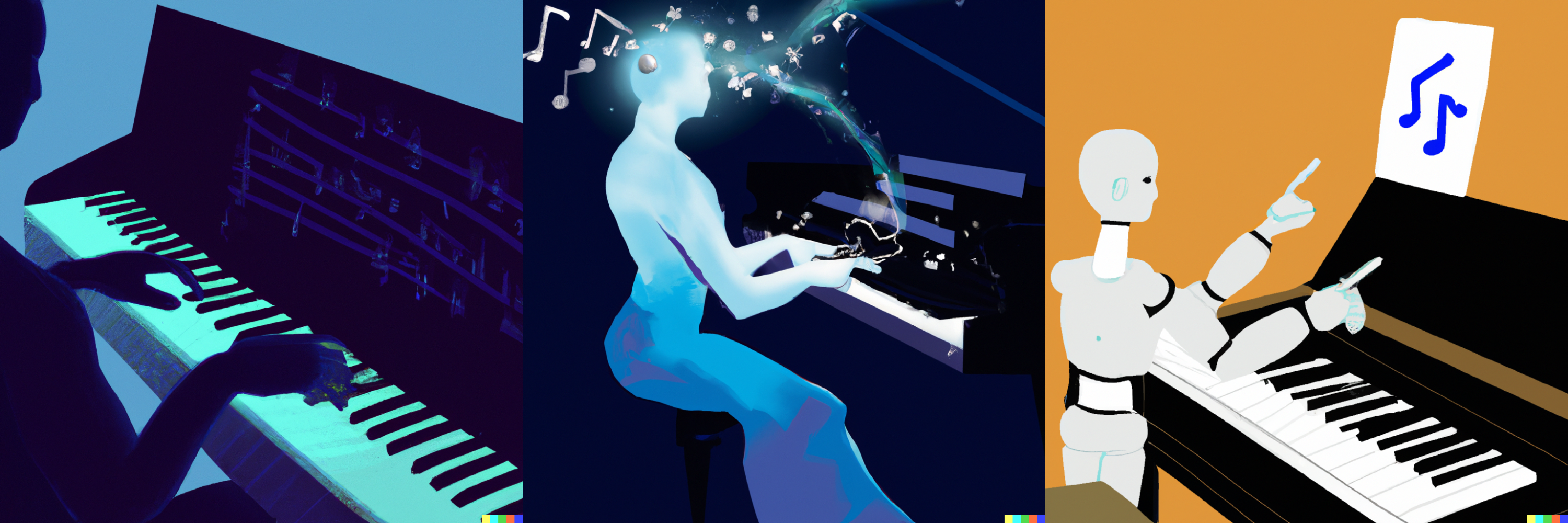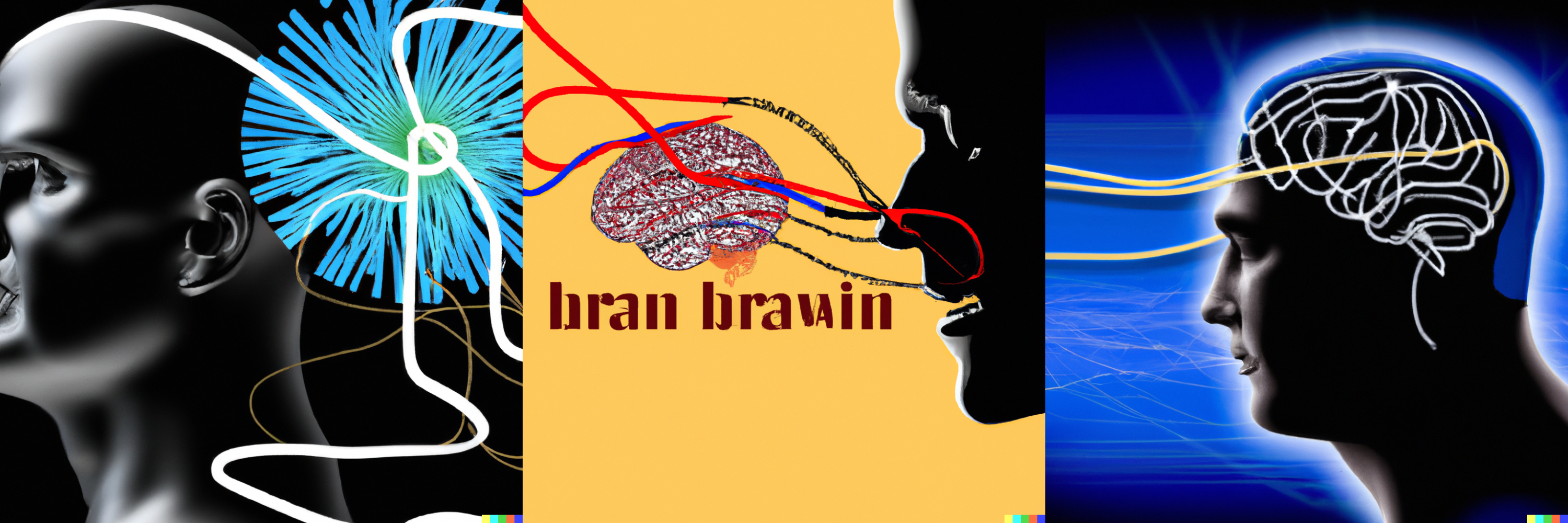The pain of learning: a tale of brains, AI and coworking
I recently started to learn to play the piano. It is something that I have always wanted to do but, for one reason or another, I have postponed it for years. Now I am somewhat glad it happened that way, and I’ll try to explain why.
I am not sure if you can recall clearly when you learned something as a child, something that took time and effort to master, and whether you can remember in detail how that process was. I certainly can’t. I can, of course, remember having learned Maths, Physics, the periodic table, multiplication and other subjects. The fact that I know some of those subjects now but I didn’t when I was born, means that I have had to learn them along the way but I can’t remember with detail the process of moving from not knowing them to knowing them and how that happened. To really highlight this, think of something you know well today; cycling, playing tennis, playing an instrument, a foreign language, programming and try to remember a time when you did not know it. What happened in between?

Dall.E generated images: "Paintings of an AI learning to play the piano"
Learning something, anything, is a pretty remarkable process. Mastering something is the extrapolation of that process to the extreme. During our education, most of us are immersed in years, decades sometimes, in which we constantly repeat this learning process subject after subject. Once we leave those, sometimes mentally exhausting years, we tend to also stop, or at least simplify, that mastering process. After all, adult lives are busier and full of other responsibilities and priorities that may not be that easily shared with the process of mastering something new.
In any case, if you have been lucky enough to be able to master something new as an adult, whatever that may be, you may have been able to be much more aware of what that process is like than when you were a kid; how your body and mind changes as you become an expert on whatever is you are learning. For me, the fact that my hands can somewhat play a melody while I’m thinking, at the same time, how on earth am I able to do that, seems like magic but, even more interesting, is the fact that we have the remarkable ability to do this in the first place and now know how that works behind the scenes. We can learn something and have learned about the process of learning itself. What a time to be alive!
Our brains are what is typically referred to as “plastic”, as in, they have the ability to take different shapes and, by that we mean, to rewire themselves. There are no wires, in the strict sense of the word in our brains, of course, by that we mean “connections” between the millions of cells in them. We know different regions of the brain are somewhat specialized in different functions and therefore areas of our body (touch, language, motion, sight…). We know also that these regions compete in some way between them: when a region’s function is engaged more, it tends to expand, more connections form and existing ones are reinforced, sometimes at the expense of other regions in charge of other functions, especially if those are less used. Learning, in some elemental way, is the process by which we create these new connections, reinforce specific ones or strengthen specific areas connected to specific functions. Mastering something, again in some elemental way, is when those connections become so strong that we somewhat can perform those functions without thinking about them, they've become second nature.
This process is exhausting for our bodies. Creating these connections and reinforcements, especially to the level required to master something, requires persistence, passion, routine, consistency and, above all, time. This is why mastering something is so hard. The results though are always beautiful and magical. Getting to understand something, learning or mastering it, is one of the most rewarding experiences one can have in life, at least in my opinion. The fact that we have this incredible ability is something we should all try to squeeze the most out of for as long as we can.
All this has a fundamental consequence: we build who we are and our abilities from the day we are born. We are not preprogrammed, and neither do our genes completely dictate who we are. Every day we are a bit different, a slightly different person. Every action we take, and every experience we live changes our brains and therefore what we know and who we are. Even now, as you read this text, your brain is physically changing, you may learn something new, or you may remember something out of this rambling and that has an impact on those connections.

Dall.E generated images: "A brain rewiring itself as a man learns"
During the last two years, as part of all the work we have done in the Nexudus Platform, I have also been lucky enough to learn a lot about the way we have taken inspiration from how our very own brains learn and have implemented what we now commonly refer to as “Artificial Intelligence”. Although the language our brains talk is based on chemistry and AI is pure mathematics, the similarities between the two are outstanding.
Many AI models, and certainly the ones we use at Nexudus, which are basically miniature artificial brains performing a very specific and relatively simple function, are trained in a very similar way to the way we train our brains to learn something: give them a bunch of inputs and tell them what the output should be. Repeat thousands of times for several different inputs and outputs until the right connections within those brains are reinforced enough so that they are able to predict or perform the correct output for any combination of inputs, even if a specific combination of inputs has never been seen before. This is basically why you and Google (in most cases) can tell a picture has a cat in it, even when that specific picture has never been seen before by you or Google. You both have seen enough cats in your life to make the connection. In the case of our brains, those connections are chemical pathways between neurons; in the case of our AI models, they are mathematical expressions with different weights for each of the inputs. Semantics!
This really means that, in a similar way to how I was describing each of us can change and is unique based on our life experiences, the Nexudus Platform today is different and changes every day and for every customer as it learns from the data available to it. This is really a remarkable thing as software enters a stage in which it is no longer preprogrammed to produce a specific and fixed output. The output changes as it learns from the data it has access to and is different for each user. The output in our case can be, for example, the price a meeting room is offered at a given day or time to maximize demand or profit, the actions we recommend to keep a customer as a member for the longest time possible or to define the meeting room or hot-desking layout for a given building based on usage patterns. But this is just the start, as these miniature brains become more and more experienced and the data they have access to and are able to process widens, they will be able to perform new functions to help our customers make the most of their buildings, make their communities more engaged and provide better services and experiences.
I find it pretty exciting... but I'll go back now to do some more swearing in front of the piano!
Related stories
New in Nexudus: Reduce no-shows & improve team bookings in your coworking space.
Meeting rooms are at the heart of collaboration in coworking spaces. Whether it's a brainstorming session, a client meeting, or a team catch-up, having a simple and efficient way to book and manage meeting rooms makes all the difference. But let’s be honest—there’s always room to improve the experience for your members.
Unlock New Revenue Streams with Our New Virtual Offices Module
The popularity of remote and hybrid working has prompted many organisations to rethink the way they utilise office space. Many have swapped their large, static HQs for more flexible satellite solutions that can accommodate a disparate workforce.
ViDA Compliance Guide: 8 Essential Steps for Coworking Spaces in the EU
Now that 2025 has arrived, the European Union's VAT in the Digital Age (ViDA) initiative is becoming a key topic for coworking spaces operating in the EU. But don’t panic—ViDA will be introduced gradually, with key changes taking effect from 2028. This major VAT reform aims to modernize tax reporting, combat fraud, and streamline compliance through mandatory e-invoicing and real-time digital VAT reporting for certain transactions.
Harnessing AI to Help Coworking Operators Understand Their Communities Better
After more than twelve years in the coworking industry, we’ve seen the movement evolve at an incredible pace, especially in recent years. Spaces have grown larger, making it harder for operators to truly connect with their communities. At the same time, expectations for higher service standards and increasing competition mean that creating tailored experiences and fostering long-term member engagement is more important than ever.
What Is Workplace Management and Why Does It Matter?
There has always been a need for workplace management – the process of organising and optimising physical spaces, resources, and operations to support people’s needs. But, as 28% of UK working adults were reported to work in a hybrid capacity last autumn (by the Office for National Statistics), the question of ‘why workplace management matters’ is more critical than ever. Let’s look at the workplace management benefits for your operations.
Exploring Coworking Software in 2025: 10 Key Nexudus Features
From automating daily processes to supporting your team in building a thriving community and boosting revenue for your business – coworking technology couldn’t be more impactful for flexible workspace operations. But with so many tools available, selecting the right tech stack for your coworking business can be overwhelming.
Unlock Your Team’s Potential with the New Nexudus Academy
As the coworking industry continues to grow and evolve, so does the Nexudus platform. We always strive to develop new features and enhance existing ones to make your job easier. When new features are introduced, there is a need to learn how to best leverage them for your space.
From Startup to AI-Powered Coworking Software Company: The Nexudus Journey
When we first launched Nexudus, we were a small, tightly-knit team wearing multiple hats—from sales to implementation and customer support. In those early days, if a customer had a question, there was a good chance that the person answering it was also the one who had built that particular feature.
Data-Driven Decisions: Using Industry Data to Shape Your Coworking Strategy
Coworking is becoming an increasingly competitive industry, making it more crucial than ever to make the right decisions. The key to success lies in having access to accurate and relevant information, which enables informed decision-making.
New Feature! - Marketing Insights for Nexudus (beta)
At the core of every thriving coworking space is its community. This has been true since the early days of the coworking movement, and it still holds today.

